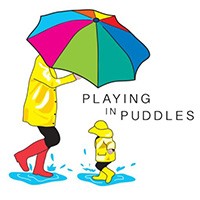For many of us parents, homeschooling our children is not something we ever pictured ourselves doing. Yet from March 2020, it’s become a common situation for almost all of us and a skill set that we’re literally developing overnight!
Thrust into a world of primary school education, working from home and small children to take care of, we’ve set the stage for a whole new level of multi-tasking. Many of us are trying to be a teacher, a daycare teacher, a mum and a worker – all in the same room and all at the same time! Is it really possible to do all of these things without completely burning out?
Thankfully, this epic juggling act that we’re all managing as best we can is only short-term. We’re hopeful that as the NSW Government begins get on top of the recent outbreak and as restrictions begin to ease, our kids will make a gradual return to school and things will get a bit easier. In the meantime, we’ve reached out to local Central Coast experts to get their tips and advice on how to manage homeschooling during these unprecedented times.
We spoke with highly regarded local professional – Rebecca Thompson (Early Childhood Consultant and founder of Stone & Sprocket) and asked how parents can best support their children with homeschooling while balancing home and work commitments.
Managing the Juggle
Sometimes, finding activities for our kids to do is the easy part. NSW schools do an amazing job at setting task work for primary-aged children. Plus there’s a wealth of ideas available online. The difficulty comes when trying to build all of these activities into a daily routine – especially when juggling work and/or younger children.
Rebecca Thompson, Early Childhood Consultant and director of Stone & Sprocket, gave us some of her tips for managing the juggle!
1. Prep what you think is achievable the night before. Local Early Childhood Consultant Rebecca Thompson says, “Did you know teachers do hours of preparation outside of the face-to- face time they spend with your child? Prep is super important, so get all of your school resources ready and URL tabs open on your computer the night before so you and your child can hit the ground running.”
2. Know your rhythm and choose short bursts of work time within it. Rebecca suggests explaining this to your kids from the outset of the day. But she says to remember to be flexible if it doesn’t go to plan. Children thrive on routine rather than regiment, so it’s important to find your balance.
3. Expect some independence in work. Rebecca’s advice is that you busy yourself and explain what you’ll be present for and what you’ll leave them to do alone. She says, “Children will test our relationships by wanting us to be with them all the time, so work out how much of this you are willing to do. Fade in and out.”
4. Give genuine feedback. Rebecca suggests avoiding saying things like, “It’s beautiful”. Instead, she recommends getting your kids to tell you how they think the quality is. If it becomes emotional, leave feedback until later or the next day. She says, “Take a break but at some point kids need to be able to edit their work to assess themselves. Did you know that too much praise that is ingenuine can result in children relying on it constantly and too much correction will result in tantrums or giving up? Keep it real.”
5. Make sure they get plenty of exercise or movement and healthy food, prior to them being expected to concentrate. Rebecca says, “Did you know that strong core muscles help with writing? Get them moving their bodies.” Check out some new local bike rides, explore a new bushwalk or rockpool, or go on a long walk together to burn some energy. We’ve got lots of features on Playing in Puddles that share our beautiful natural areas, so you’ll never have to visit the same place twice.
6. Provide a clear workspace. Finally, Rebecca highly recommends spending the time finding a space that’s clean and tidy. She says, “Visual clutter can be a distraction to productivity, so set up for success!”

Challenges and some possible solutions
We asked Local Early Childhood Consultant Rebecca Thompson of Stone & Sprocket if she could give us advice on how to manage some of the obstacles that arise during a typical homeschooling day. She provided the following tips to help keep us organised and on track!
1. Organise Your Logins. Rebecca says, “The amount of online platforms required to log in to is phenomenal! Create a word document with all the links and passwords in one place – this helped us immensely.”
2. Identify chunks of the day for schoolwork at 15-20mins each. For primary school children, Rebecca suggests finding out what your rhythm is in the day generally and then selecting chunks to do school work. She says, “If your home based learning plan from school asks nine things for the day and you can only see three chunks, then do the three. Any others are a bonus.”
3. Connect with other families from school. Rebecca asks, “Do you and your kids have that longing feeling for being part of the school physically? Make sure you connect with other families and involve your child in talks with their teacher. You could even go for a drive past the school one day – just to give your child that physical connection.”
4. Keep your children from eating everything in sight! Rebecca says, “Talk to your kids about this at the beginning of the day; explain that there’ll be fruit break, morning tea, lunch and afternoon tea only”. Our Playing in Puddles’ editor has started “packing” her kids a school lunch each day – it means they get a balance of fruit, yoghurt and a sandwich, and only a couple of the pantry snacks that they would otherwise happily consume all day. We find that kids love asking for water right when it’s time to do a new session of school work! So we’ve started filling their water bottles at the start of the day too.

How can I keep my toddler occupied while homeschooling older children?
It’s a common struggle many of us are facing right now. Toddlers or younger siblings who aren’t doing home-learning seem to love starting their ‘hot laps’ just as soon as school work time arises! Rebecca of Stone & Sprocket suggests setting up ‘work’ for them to do too, making them feel part of it. Even if their attention span doesn’t last as long as your school child’s, they can start on something and feel part of the ‘work’ train.
Then let them go and play but ask them to be respectful and play alone for 10 minutes and then you can come and spend time with them. Constantly shifting between tasks is near impossible for our brains,” Rebecca says. “This is normal and there is no way to beat this frustration, we’re all feeling it!”
Another suggestion from Lesley Smith of Kindermusik is to work daily chores into the routine. Lesley says, “Younger children love to clean. Give them a cloth, child-safe solution (you can make a homemade one with a 1:1 ratio of water and white vinegar, and a few drops of lemon juice or a citrus essential oil), some clear surfaces to wipe and they’re set!”

Stone & Sprocket are regularly posting tips and advice for home schooling young children on their Facebook page so be sure to check it out for more ideas!
FOLLOW PLAYING IN PUDDLES TO DISCOVER THE BEST OF THE CENTRAL COAST FOR KIDS

Rebecca Thompson is an Early Childhood Consultant and founder of Stone & Sprocket. Through Stone & Sprocket, Rebecca runs seminars and live webinars on challenging behaviours and childhood development for parents, as well as workshops on programming, leadership and behaviour guidance for early childhood teachers.
Follow Playing in Puddles to discover the best of the Central Coast for Kids
We keep you updated on the popular hotspots and reveal new businesses that are sure to become your local favourites.
Be the parent in the know!

Join us on Facebook, follow us on Instagram, and subscribe to our Newsletter.



